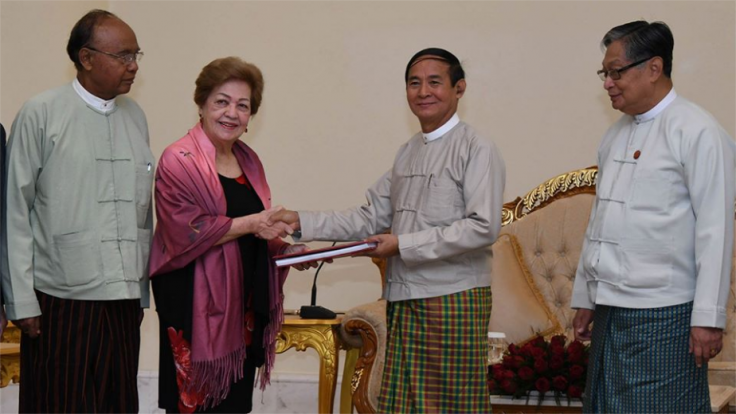A few days shy of the verdict on the Rohingya issue by the UN's International Court of Justice, a probe by an independent commission formed by the Myanmar government believes that there is no evidence to support the charges of genocide filed against the state. The case was filed in the court by the African nation of Gambia.
The commission concluded that there are signs of war crimes that led to the displacement of around 700,000 Rohingya in Myanmar. The commission handed in the report to Myanmar President Win Myint on Monday morning.
A press release on the findings of the commission was posted on their Facebook page.

Myanmar in genocide denial?
The report said the commission was not able to find any evidence of genocide. But the report also emphasized on the abuse the Rohingya people had to endure at the hands of Myanmar soldiers. The commission announced that the 461-page report can be used for investigations and possible prosecutions by Myanmar's civil and military authorities.
UN investigators have been pointing to the fact that there was genocide in the country. Members of a UN team were not allowed to enter the country, hence much of the investigation was conducted with the help of interviews with the refugees in other states.
The independent commission was sent to Rakhine State, Yangon and the Myanmar capital Naypyitaw for collecting evidence. The commission was led by senior Philippine diplomat Rosario Manalo and it included retired Japanese diplomat Kenzo Oshima, Myanmar presidential adviser Aung Tun Thet and legal expert Mya Theinn.
The inclusion of the members close to the government clouds the credibility of the report submitted to the president.
The panel said that the evidence was insufficient to argue that "the crimes committed were undertaken with the intent to destroy, in whole or in part, a national, ethnic, racial or religious group".
Myanmar's stance on the issue
Myanmar has always maintained that the crackdown on the Rohingya was necessary to weed out rebels within the ethnic community. But the refugees argued that the country had tortured them and raped women and resorted to arson.
The complaint filed by Gambia talks about the issue as genocide in the ICJ and argues for the Rohingya Muslims and humanitarian aspects.









